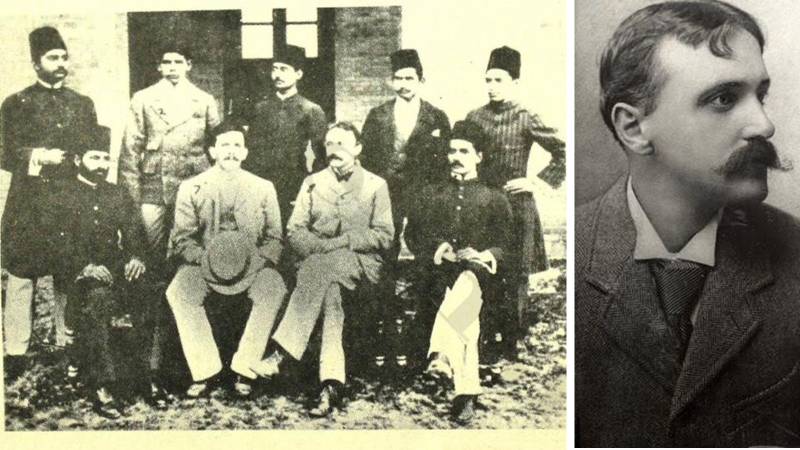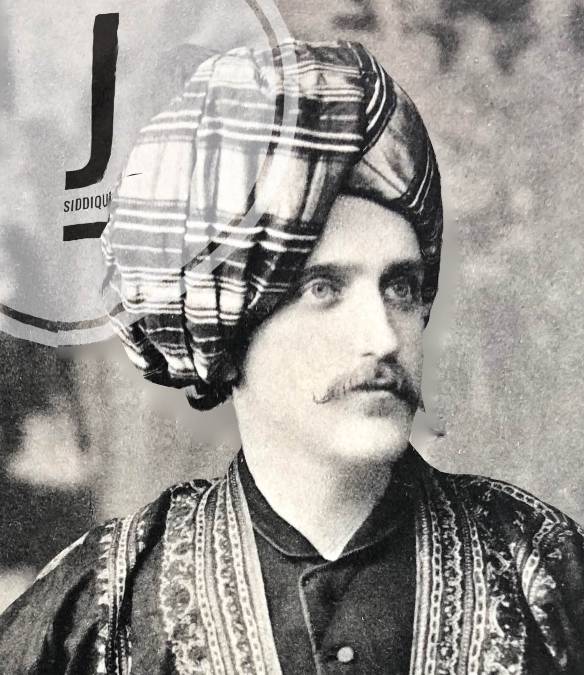
In the aftermath of the Indian War of Independence in 1857, the British blamed Muslims for the uprising that nearly overthrew their rule. They bore the brunt of reprisals and felt destitute and demoralized. Sir Syed Ahmad Khan, a junior judge at the time, was highly moved by the plight of his fellow Muslims. He enjoyed some favour with the British, as he had helped save many British men and women during the rebellion.
In his definitive biography of Sir Syed, Maulana Hali stated that when the British regained control of Delhi, they offered Sir Syed a large estate (Jagir) as a reward for his humanitarian services. Sir Syed declined, as he was in a state of depression and contemplating leaving India and migrating to Egypt. Ultimately, he decided to stay and do something to help his community. Sir Syed concluded that Indian Muslims most of all needed modern, Western education, not Madrasa-based schooling that had led to a dead end.
Impressed with the British education system, he desired to travel to Britain and study the functioning of their academic institutions but lacked the financial means to do so. It so happened that the government selected several students for expense-paid scholarships to study in England, one of whom was Sir Syed’s son, Syed Mahmoud. Sir Syed decided to accompany his son, but had to find some way to pay his expenses. He had to mortgage his house to cover the costs.
In April 1869, he and his two sons, Syed Hamid and Syed Mahmoud, departed for Britain by sea. He documented many of his impressions and noted what he saw and whom he met. His memoirs, written one and a half centuries ago, describe Britain and Europe in an era that has long vanished. Today, it makes fascinating reading. Sir Syed travelled extensively in England and received warm hospitality from prominent English people who knew him from India.
Sir Syed was especially interested in visiting the two historic universities, Oxford and Cambridge. He visited Cambridge with Syed Mahmoud and wrote in his diary, “The visit enormously impressed me by the amount of wisdom, generosity and hard work that had been invested in creating this great centre of learning. I prayed my countrymen, who still lack any enthusiasm for education, may wake up and establish an institution that commands international admiration, like Cambridge.”
In 1875, on his return to India, Sir Syed founded the Mohammedan Anglo-Oriental College (MAO) in Aligarh, which was mainly patterned after Cambridge University. His aspiration for the college was that it would follow the British education system but retain Islamic values. Sir Syed hoped to bring English professors from Cambridge to teach at MAO College. He insisted that the college must have three or four European professors in those early years. However, the task was often difficult, as they had to be paid much higher salaries than their Indian counterparts. Syed Mahmoud proved very helpful as he persuaded a few of his friends at Cambridge to come to Aligarh.
European professors infused their students with a culture of discipline, punctuality, and intellectual curiosity - qualities which Sir Syed highly admired. This essay will review the contributions of one prominent European professor, Theodore Beck.
Beck spent his entire professional life at Aligarh and significantly influenced the culture and direction of the college. Only 24 years old when arrived in India, he was educated at Cambridge and was known to Syed Mahmoud. Sir Syed, in 1883, appointed him Principal of the College, and he served in this position until his death. When he started at Aligarh, he was not much older than most students and younger than most teachers. He was described as “a man of extraordinary talents and enthusiasm, a pretty young man with pink cheeks and blue eyes.”
At an impressionable age, Beck soon started identifying himself with the college, adapting its ideological orientation, even occasionally its dress and mission. The MAO College adopted the dress code mandated at Cambridge, an academic gown worn over clothes for students and dons. In his definitive book, Aligarh’s First Generation, the American scholar Professor David Lelyveld, who spent three years (1967-1969) at Aligarh researching for the book, noted that Beck was instrumental in establishing a Cambridge-style debating society or Union Club, inaugurated in August 1884.

As president, he retained the veto power over what could be debated or discussed, lest the Society become a forum for sedition or the independence movement. The injunction was readily accepted. It was the peak of the British Raj in India, and the British were viewed with reverence and awe. With Beck’s active participation, the Union became a training ground for speakers who debated on a range of topics, braving much heckling and hooting from the floor, patterned in the British parliament. Religion and politics were never discussed.
Unlike most Europeans, Beck developed an enthusiastic, easy rapport with his students. Khvajah Yousuf, a prominent landlord at Aligarh, is quoted by Lelyveld, “When I saw Mr. Beck for the first time mixing cordially and sincerely with my countryman, my surprise though very agreeable was very great.”
Beck had made a personal commitment to serve MAO College. His devotion included his family's allegiance, so in 1891, he brought his parents and sister to Aligarh. They were warmly welcomed by students, who treated them to a formal dinner party. At the time of their departure, Sir Syed presented them with a beautiful vase. After reaching home, they reciprocated and sent a clock as a gift to the College, which hangs by the ceiling of the Victoria Gate.
Maulana Shaukat Ali, in his days, was a prominent student who held highly prestigious positions as the Student Union president and Captain of the Cricket team. He has provided a detailed account of his interactions with Beck, cited by Lelyveld. He saw the MAO College principal for the first time at Rampur, his hometown when he brought the Aligarh Football team to play a match. “Shaukat Ali was amazed when he saw two English professors, Beck and Morrison, sitting on a Charpoy, laughing and chatting away with the students.” “On another occasion, traveling with some students to Allahabad for the University Athletic tournament, Beck was quite as boyish and excited as any of his students were.” That kind of informal behaviour by Englishmen was unheard of in British India then.
Sir Raza Ali, a successful lawyer who had observed life at MAO College firsthand, related an interesting episode in his book, Aamal Nama. The college was plunged into a crisis following the death of Sir Syed, as the Trustees disagreed on the choice of his successor as Honorary Secretary. Syed Mahmoud furiously insisted that he was the legal replacement for his father, but the Trustees chose Mohsin-ul-Mulk instead. Beck was perhaps the only person with a close relationship with Syed Mahmoud and helped pacify him. The crisis was averted.
With the death of Sir Syed in 1898, Beck lost his mentor and ardent supporter. He was exhausted and went to Shimla for a rest and to meet the Viceroy, Lord Curzon, both fellows from Cambridge. Beck died on 2 September 1899, a year after Sir Syed. He was only 40 years old. Few in the later generations at Aligarh will appreciate how much this Englishman influenced their institution's academic and cultural landscape for the better.

